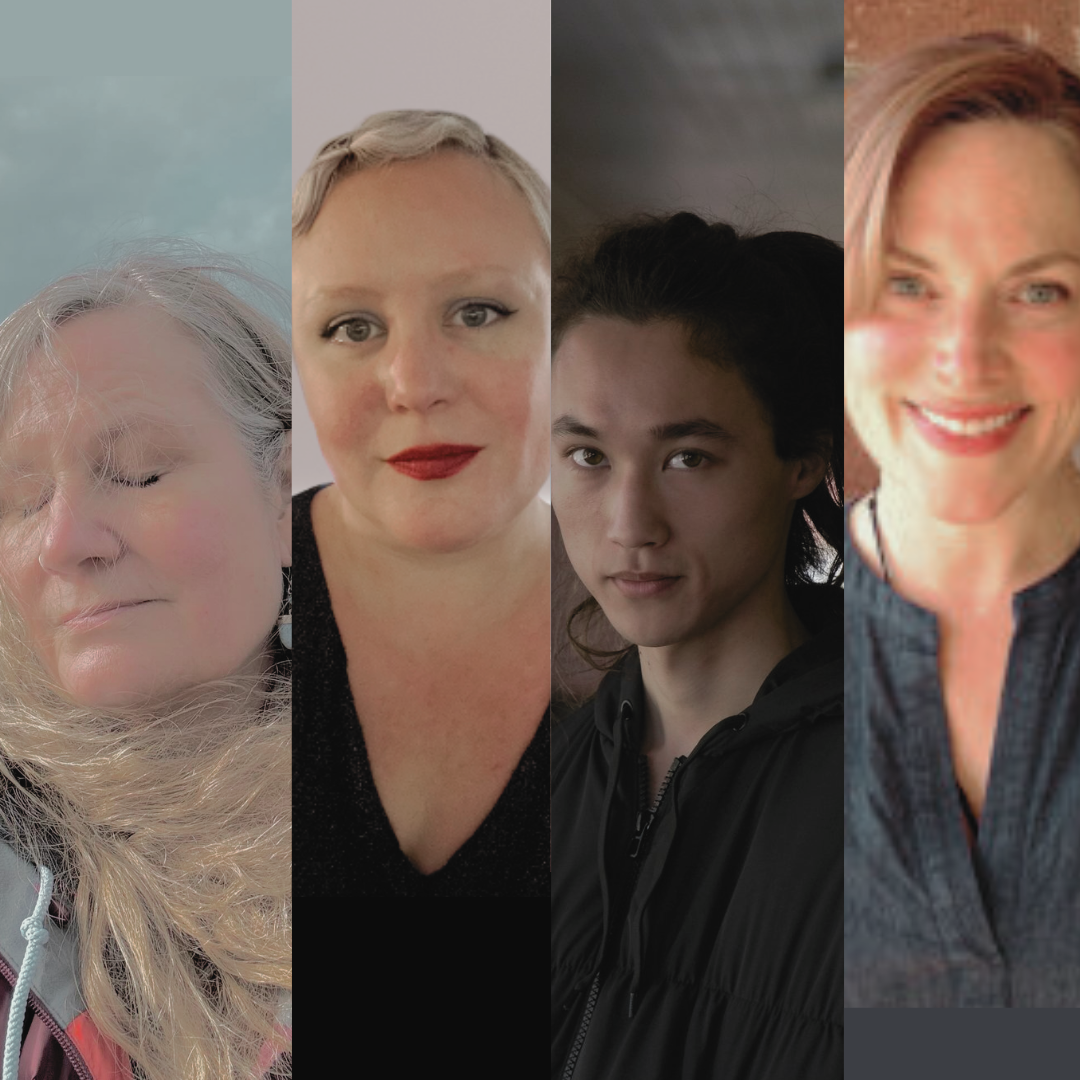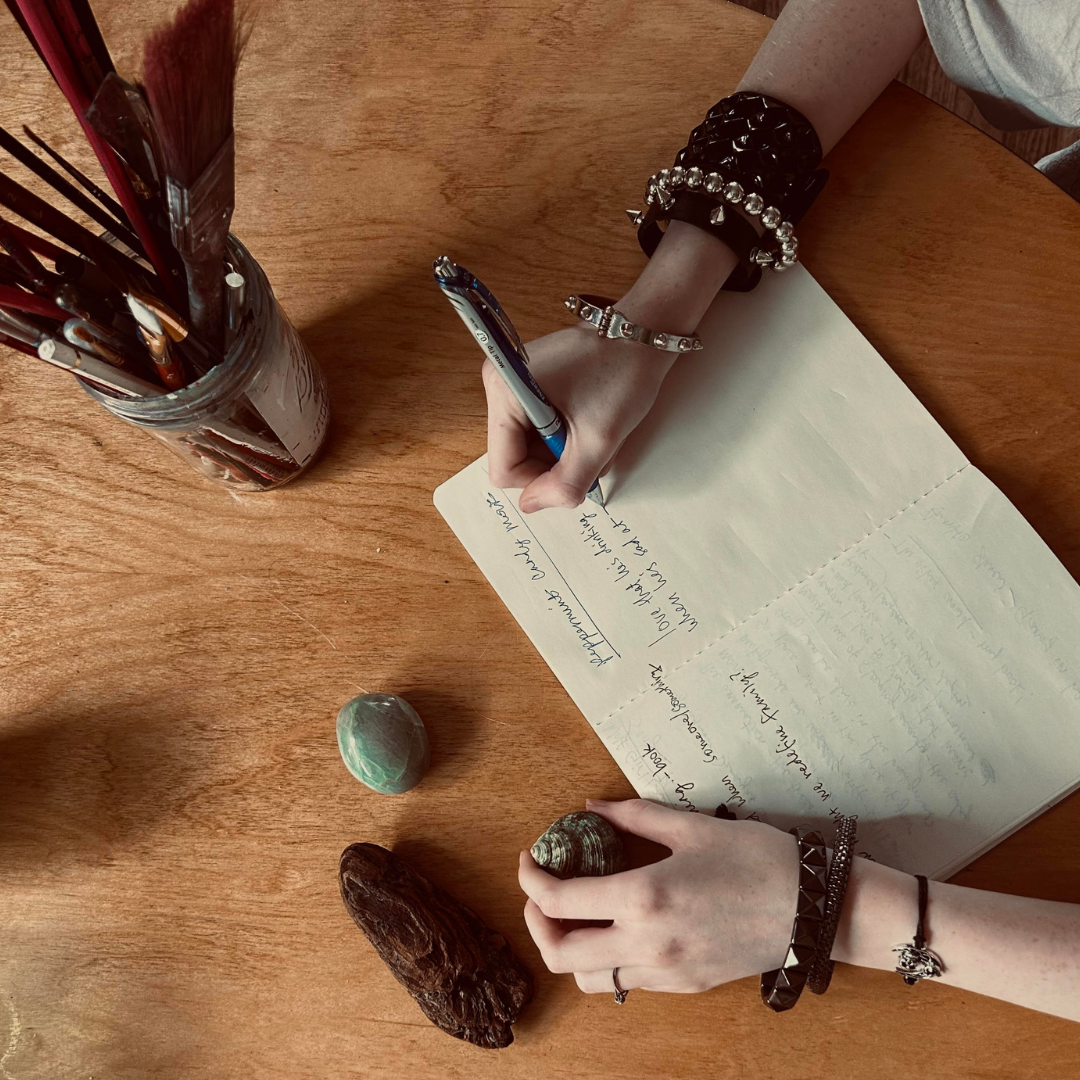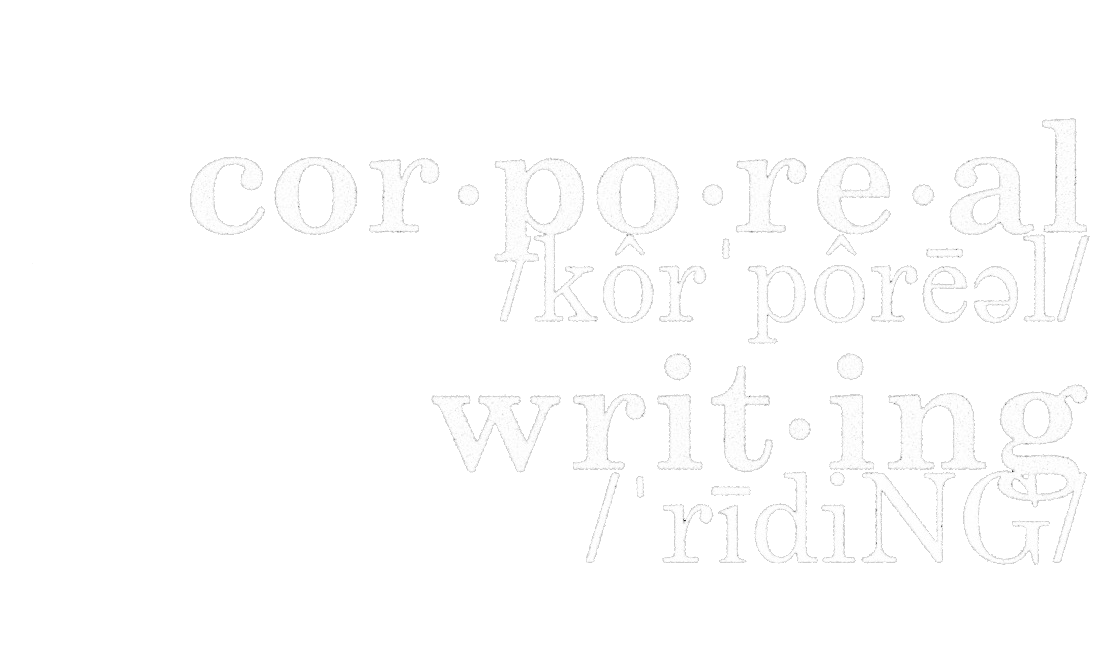Craft as Conjuration: Hybrid Work and Sound (with Lidia Yuknavitch, Katie Guinn, Jun Maruyama, and Leigh Hopkins) — Dec. 6th


Craft as Conjuration: Hybrid Work and Sound (with Lidia Yuknavitch, Katie Guinn, Jun Maruyama, and Leigh Hopkins) — Dec. 6th
Craft as Conjuration: Hybrid Work and Sound
a generative webinar with Lidia Yuknavitch, Katie Guinn, Leigh Hopkins, and Jun Maruyama
Saturday December 12/6 over Zoom from 12pm to 2pm Pacific
(A recording will be made available to all registrants for a limited period afterwards)
How interesting it would be to raise the atmosphere, choose the palette, plumb the sounds of her young life, and convert it all into language as seductive, as glittery, as an evening purse tucked away in a trunk!
— Toni Morrison, Jazz
& what if I claim ocean as
my literary form, sea as my preferred
genre (if I must name one)? May I
cite water as my container / conveyor
of choice, through which I
may allowed the unmediated
flows of that immaterial substance
we call voice?
— Dao Strom, A Mouth Holds Many Things: A De-Canon Hybrid-Literary Collection
What might other art forms, genres, entities inform, share, nudge, whisper, reveal, incite, animate, to/with/in us and in our writing? What can we learn about through sound, noise, reverberation, vibration, rhythm in other genres and forms such as music and sonic elements in video games? How might a sound or sounds become the fabrics, the networks, the narrative structures of our stories? How does a sound or sounds feel in our bodies?
In Craft as Conjuration: Hybrid Work and Sound, we will look at the role of sound in music and other genres/forms and explore its roles, possibilities, and play in our writing.
Pricing:
The following payment model is inspired by and borrowed from the payment model of Bayo Akomolafe’s class, We Will Dance With Mountains: Into the Cracks.
This workshop offers a sliding scale based on your relative financial standing. In an effort to reflect disparity in economic condition and access to wealth, the following payment system is designed for those with more wealth to help cover the costs of those with less access to wealth and resources. We trust your discernment of your current financial situation and how you fit into the global economic context.
As you decide what amount to pay, please consider your present-day financial situation governed by income, but also the following factors: historical discrimination faced by your peoples; your financial wealth (retirement/savings/investments); your access to income and financial wealth, both current and anticipated (how easily could you earn more income compared to other people in your community, country, and the world; are you expecting an inheritance); people counting on your financial livelihood including dependents and community members; the socio-economic conditions of your locale (relative to other places in your country and in the world); your relationship to food & resource scarcity.
$250 Partner
$175 Supporter
$100 Companion
$50 Friend
We always offer payment plans. Please email Daniel at registration@corporealwriting.com for more info, or if you are feeling challenged in any way by the financial requirements of participation.
Lidia Yuknavitch is the author of the bestselling novels Thrust, The Book of Joan, The Small Backs of Children, and Dora: A Headcase, as well as the critically acclaimed anti-memoir The Chronology of Water (adapted for feature film directed by Kristen Stewart) and a study on war and narrative, Allegories of Violence. Her polyvocal book The Misfit's Manifesto is based on her TED Talk, "On the Beauty of Being a Misfit," now with over 4 million views. She is a three time Oregon Book Award winner, A PNBA recipient, and a grateful writer who has benefited from grants from Poets and Writers, Literary Arts, and The Regional Arts and Culture Council. She is the founder of Corporeal Writing in Portland, Oregon where she collaborates and agitates, and she teaches in the low residency MFA programs at Sierra Nevada University and Goddard. She lives in Oregon near water. She is a very good swimmer.
Katie Collins-Guinn (she/they) is a mother, artist, writer, spouse, and dirt digger. Her adult coloring book The Stoner Babes was published in 2018 with Microcosm Publishing, which celebrates diversity alongside the transcendental and medicinal qualities of cannabis, and is sold worldwide. She’s spent time as a contributing freelance writer for the Portland Mercury and has been published in Pacific Stone Zine, Call Me [Brackets], Entropy, Nailed Magazine and others. She knows how to make a spectacular gown from scratch.
Leigh Hopkins is a queer writer and the Editor and Curator of Khôra, a dynamic online arts space conceived and produced in collaboration with author Lidia Yuknavitch and Corporeal Writing. Leigh is a columnist at The Rumpus, and her work has appeared in BOMB Magazine, Longreads, McSweeney’s, Entropy, and The Philadelphia Inquirer, among other publications. She is a writing workshop leader at Corporeal Writing and the Director of Viva Institute. After the publication of Leigh’s essay The Brazilian Healer and the Patron Saint of Impossible Causes (Longreads), she was featured in a Brazilian documentary by the film crew who first exposed the crimes of John of God, the world’s most famous “spiritual surgeon.” In 2010, Leigh left a career in social policy to move to Brazil, where she founded an online institute by rigging a satellite dish to a boulder in a banana field. Before moving to Brazil, Leigh was a leader in the design, development and implementation of the after school literacy program model Youth Education for Tomorrow (YET), which was referenced by President Obama in the New York Times as an example of what’s possible in community-based institutions. As the Vice President for Education of a leading social policy think tank, Leigh provided support to 500 literacy programs in historically underserved communities throughout the United States. Today, Leigh lives in Philadelphia with her wife and Portuguese-speaking Jack Russell Terrier.
Jun Maruyama (they/them) is a queer, trans Japanese-American writer, interested in exploring hauntings, senses/sensations, the body, dis/assemblage, and gender. They enjoy listening to music, drinking coffee, and being around trees and old shops. Enamored by snakes and bees, liminal spaces, and the unknown. Constantly transforming. “Life and death were mine, and I was monstrous” by Clarice Lispector is a fav quote. They have a BA in Creative Writing (with minors in Anthropology, Japanese, and Literature) from Pacific University and a MFA in Creative Writing from Portland State University, where they taught writing and composition courses.
